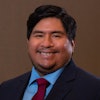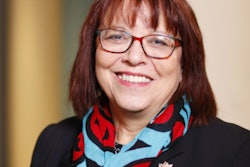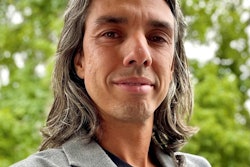LOS ANGELES, Calif.
Gaming wealth has brought unimaginable wealth and altered the lifestyles of the Seminole Tribe of Florida, often considered among the most traditional of American Indians, an anthropologist writes in a new book.
The University of California at Los Angeles announced publication of High Stakes: Seminole Gaming and Sovereignty (Duke University Press) by anthropologist Jessica R. Cattelino, a UCLA associate professor.
Cattelino was granted unprecedented access to conduct field work on the Seminoles’ six reservations, where she spent a year interviewing more than 100 people, attending tribal council meetings, and learning about everyday life.
Florida Seminoles opened the first tribally operated high-stakes bingo hall in North America In 1979.
The professor found that the Seminoles’ estimated $1 billion in annual gaming proceeds has opened the door to a wealth of opportunities for the 3,300-member tribe whose people a generation ago, had no access to higher education and lived in small palm-frond huts.
In addition to generous monthly distributions to individuals, gaming proceeds have brought universal health care, financial support for unlimited education, full senior care and community centers, she observed.
In the mid-1960s, government regulations had pushed tribal members into homes arranged without regard to extended family ties. But the new wealth has allowed construction styles and housing arrangements that cluster residents according to Seminole matrilineal clans, Cattelino found.
The money has also provided an effective escape from the long cycle of dependency on the Bureau of Indian Affairs and federal assistance programs. Throughout the book, Seminoles express great pride in their ability to provide for themselves and in their tribe’s increased political power and savvy.
Tribal members, who for generations were unable to use tribal lands as collateral to secure loans or who faced banks reluctant to lend to American Indians, no longer face such obstacles.
“Now we don’t have to wait on anyone anymore, and I think to me that means a whole lot, to be able to do something ourselves instead of having to wait on people,” one Seminole tells Cattelino.
The author also found that many new employment opportunities make allowances for traditional practices that once put Seminoles at odds with non-Seminole employers. Tribal government and Seminole-owned businesses provide time off for their own holidays, events and mourning rituals, for instance.
Their wealth also comes with consequences, the anthropologist found. Traditional Seminole skills, such as making crafts and wrestling alligator, are not being passed on. Wealth has also attracted attention and resentment from the outside community, Cattelino wrote. Seminoles recount that strangers have approached them to ask how much money they make or have vandalized their vehicles.
High Stakes also returns frequently to the Seminoles’ efforts to diversify into sugarcane and citrus production, eco-tourism and other business ventures and their success in avoiding gaming scandals.
“This is a money maker,” one Seminole tells Cattelino. “It isn’t who we are.”
Cattelino is donating all proceeds from the book to the Seminole museum at which she volunteered during her research.
Click here to post and read comments
© Copyright 2005 by DiverseEducation.com





















